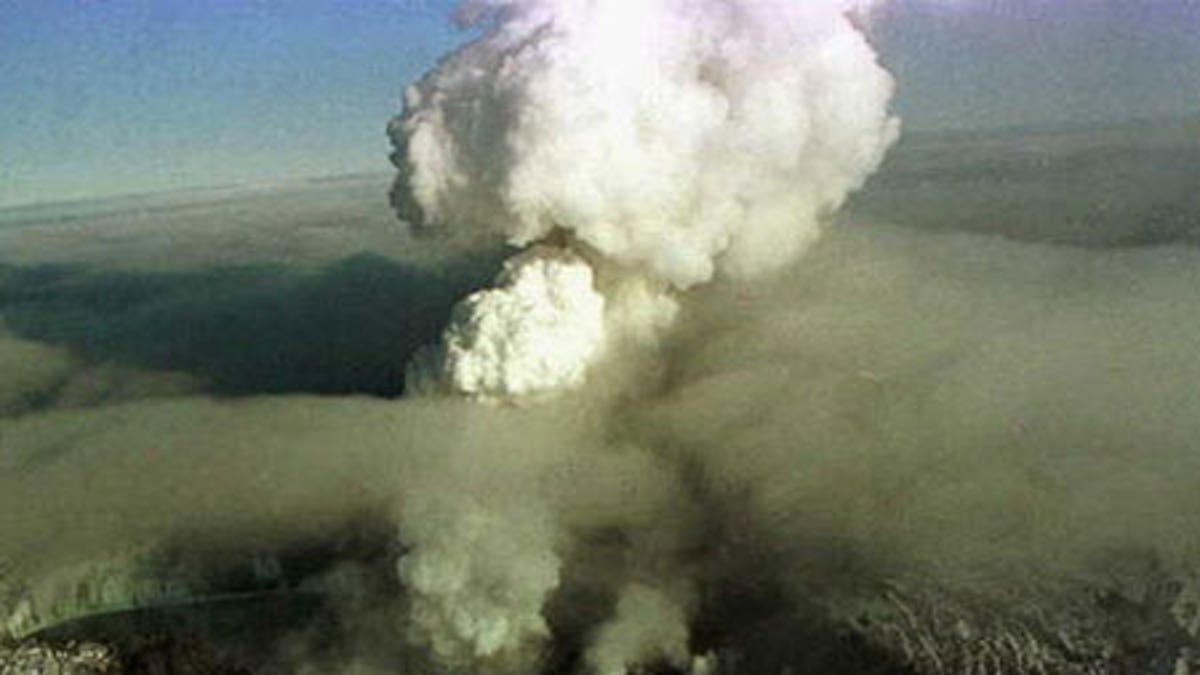
The World Health Organization issued a warning to Europeans Friday to stay indoors as ash from Iceland's volcano starts settling. Small amounts of ash have already begun to fall in Iceland, Scotland and Norway.
In the midst of a volcanic eruption strong enough to halt air travel over certain parts of Europe, concern is growing about the potentially deadly health effects the ash could have on people living in the region.
Dr. Manny Alvarez, senior managing health editor of FoxNews.com, said he thinks it is common sense that an eruption of this magnitude could be hazardous to people’s health.
“We need to be very careful if this cloud persists — it’s foolish to think that all flights have been cancelled because of it, and we are not going to be exposed,” Alvarez said.
The enormous dust cloud, hovering 20,000 feet over much of northern Europe, may contain large amounts of silica, a natural component of rock that comes with these types of volcanic explosions.
“Inhaling silica into your respiratory system can lead to a deadly, chronic lung disease called silicosis that can damage the lungs and heart,” Alvarez said. “It also increases the potential of developing lung cancer.”
Silicosis is an incurable, irreversible lung disease that progresses even after exposure has ended.
WHO spokesman Daniel Epstein said Europeans who venture outside might want to consider a mask. Alvarez agrees this is a good idea, especially for people with lung conditions.
“People with lung disease, bronchitis, COPD or asthmatics need to be especially careful to stay away from exposure to the volcanic ash,” he said.
History shows just how harmful silica in the air can be. In the 1980 eruption of Mount St. Helens in Washington, people in the region reported pink eye and irritation, chronic stuffy noses, scratchy throats, coughs and chest tightness.
“One of the most important things scientists will have to do going forward is monitor any statistic increases in symptoms around the world with this eruption. We don’t want people’s lives to be cut short,” Alvarez said.
Even when the flights are back to normal in Europe, this health ordeal will not be over, he said.
“People still need to check with their doctor if they are at risk for asthma, bronchitis, or COPD before flying in that region,” he said.








































